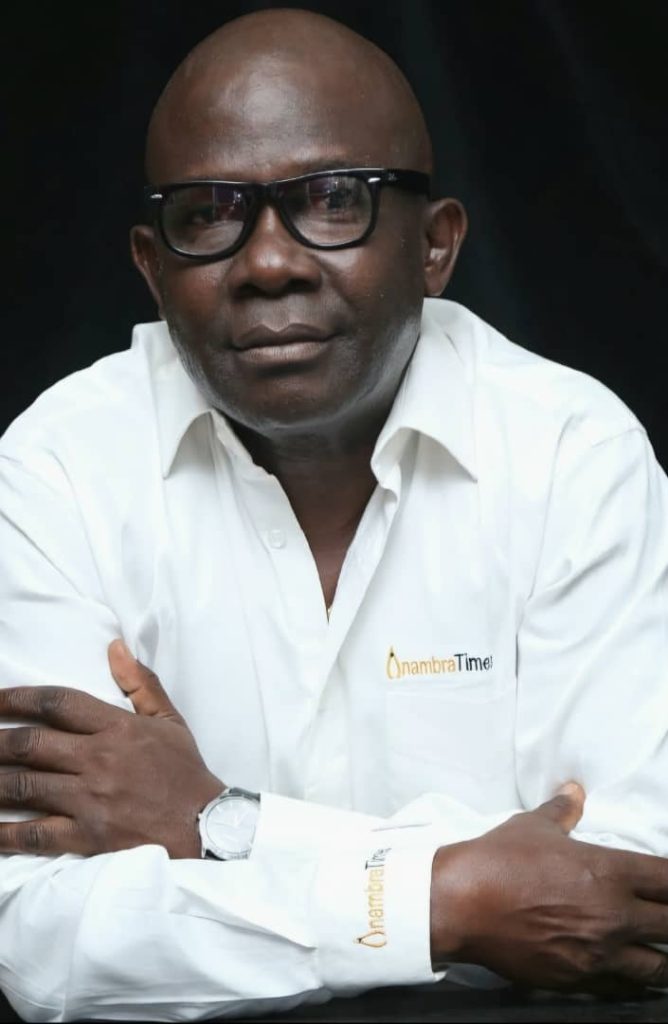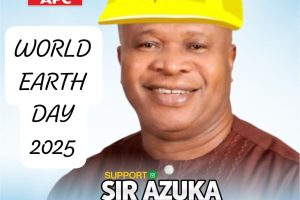
Paul Nwosu
When President Bola Ahmed Tinubu visited Anambra State recently, he was met not with celebration alone but with a sobering reminder of the unresolved wounds festering in Nigeria’s Southeast. Senator Victor Umeh, representing Anambra Central, stood before the President and delivered what many have called a bold, unfiltered appeal on behalf of a region that feels forgotten.
With conviction and clarity, Umeh demanded the release of Mazi Nnamdi Kanu, the detained leader of the Indigenous People of Biafra (IPOB), held in custody by the Department of State Services since 2021. He questioned the double standards in the federal government’s treatment of agitators. “Why is Nnamdi Kanu’s case being treated differently?” Umeh asked, comparing Kanu’s plight with the pardons granted to other agitators like Omoyele Sowore and Sunday Igboho. “He is a freedom fighter, not a terrorist.”
The senator’s call wasn’t just about Kanu; it was a rallying cry against what he sees as a systemic sidelining of the Southeast. Umeh highlighted decaying federal infrastructure, especially roads, the region’s exclusion from federal employment, and the conspicuous absence of key projects such as railways. “How do we preach unity in a country where one region is abandoned in development and representation?” he pressed.
President Tinubu’s response, though forward-looking, was calculated. He pledged to review the railway master plan to include Anambra State, fix the Anambra–Kogi road, revive the Southeast gas infrastructure, and tackle the endemic erosion ravaging the region. These promises, if kept, could mark the beginning of real change. But conspicuously absent in his response was any mention of Nnamdi Kanu or the delisting of IPOB from the terrorist register, a silence that many interpret as a decision to let the judiciary carry the burden of what is, at its core, a deeply political matter.
This deliberate silence echoes a concern raised in AnambraTimes on the eve of the visit, where I wrote that Governor Soludo or any prominent Southeast political figure should urge the President to politically resolve the Kanu issue. Senator Umeh rose to the occasion, but Tinubu’s silence signaled a preference for due process, even when other politically sensitive cases have found resolution through executive discretion.
Even more revealing is what Umeh said about youth exclusion. He lamented the lack of Southeast participation in federal employment. While the sentiment is valid, the problem may lie closer to home. For years, recruitment officers from Nigeria’s armed forces and police have decried the poor turnout of Southeast youths in advertised intakes. The quotas are there, but not filled. Apathy, distrust, and the stigmatization of uniformed service have combined to alienate young Igbo men and women from these institutions.
If this trend continues unchecked, it won’t just be a quota issue, it will become a generational absence. In ten years, the hierarchy of these national institutions may have little or no Southeast representation, deepening the narrative of marginalization that is already inflamed.
This is why Southeast leaders must go beyond decrying marginalization and actively mobilize youth participation in the few opportunities that do exist. Community organizations, religious institutions, and state governments must demystify government jobs and restore faith in national institutions. Not only for the sake of representation but for the long-term security and influence of the region.
The Southeast’s cry for justice, whether in the form of releasing Kanu or bridging infrastructure gaps, is not just a political statement; it is a call for a deeper national reckoning. President Tinubu’s visit and Umeh’s candid address have once again laid bare Nigeria’s fault lines. What happens next depends not only on Abuja’s response but also on the Southeast’s willingness to engage, organize, and participate in shaping its own future within the Nigerian federation.
Paul Nwosu PhD writes from Awka





